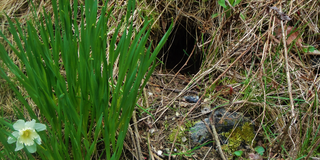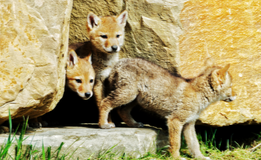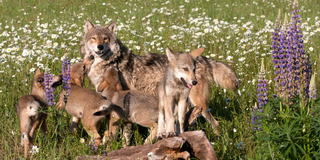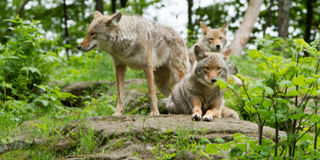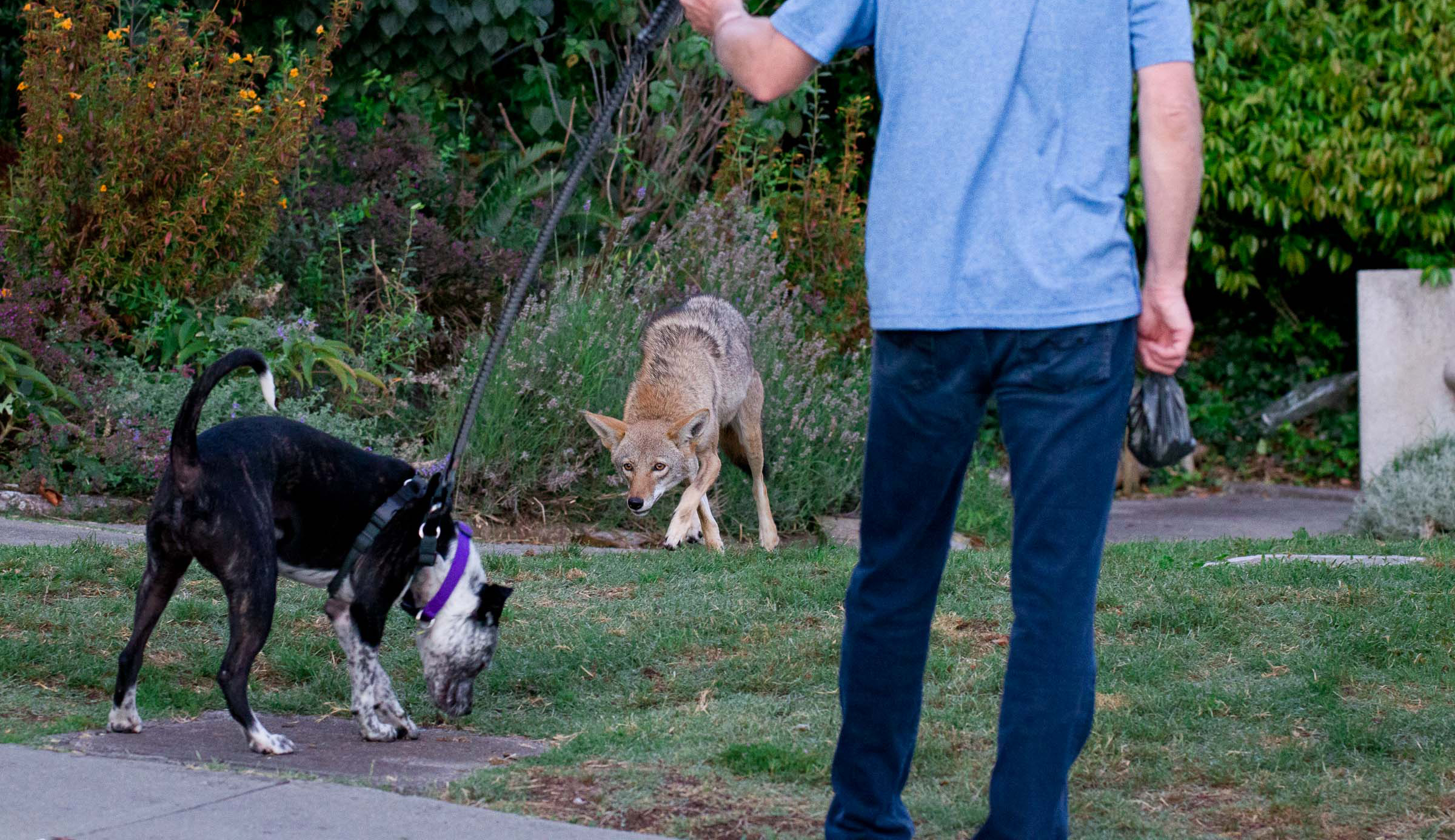
Coyotes are wildlife indigenous to the Verdugo Mountains adjacent to Burbank. They are adaptable animals and learn to live comfortably alongside humans. As such sightings are common in neighboring residential areas. Read below for more information on coexisting with coyotes.
*California Fish & Wildlife will only respond if a human is attacked by a coyote.
REPORT A COYOTE SIGHTING TO THE BURBANK ANIMAL SHELTER AT (818) 238-3340. If calling after-hours, contact the Burbank Police Department at (818) 238-3000.
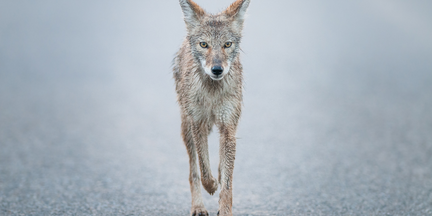
Coyotes are typically highly active at night, though they can be spotted during the day. They are naturally fearful of humans, but may become more comfortable if given easy access to human food, garbage, pet food and small domestic pets. Dens can be found in storm drains, under storage sheds, holes in vacant lots, parks, golf courses, or in dark and dry places. Coyotes eat small animals such as rodents, squirrels, gophers, opossums, raccoons, skunks and foxes. They have also been known to eat dead animals.







